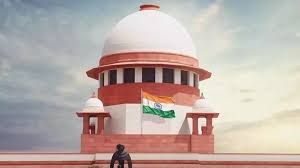NEW DELHI: Holding that the expression ‘industrial alcohol’ is covered under ‘intoxicating liquor’ mentioned in Entry 8 of the State List (of the Seventh Schedule) of the Constitution, the Supreme Court on Wednesday said states have the power to regulate and tax production, manufacture and supply of ‘industrial alcohol’.
By an 8:1 verdict, a nine-judge Constitution Bench led by Chief Justice of India DY Chandrachud overruled the top court’s 1990 judgment of a seven-judge Bench in Synthetics & Chemicals Ltd versus State of Uttar Pradesh, which had ruled that states could not tax industrial alcohol as ‘intoxicating liquor’.
While Justices Hrishikesh Roy, Abhay S Oka, BV Nagarathna, JB Pardiwala, Manoj Misra, Ujjal Bhuyan, Satish Chandra Sharma and Augustine George Masih went with the CJI, Justice Nagarathna delivered a dissenting verdict.
The meaning of ‘intoxicating liquor’ under Entry 8 of the State List (List-II) was beyond the narrow definition of alcoholic beverages or potable alcohol and included all kinds of alcohol, which could adversely affect public health, the top court said, adding, “The public interest purpose is evident.”
The term ‘intoxicating’ could be understood as poisonous and liquor not colloquially or traditionally considered as alcohol may also be covered as ‘intoxicating liquor’ within the meaning of Entry 8 of List 2, the majority verdict said.
“Alcoholic liquor and intoxicating liquor are used for consumption but the entry of intoxicating liquor stretches to its manufacturing etc. Alcoholic liquor is defined by the ingredient and ‘intoxicating’ is defined by effect. Thus, alcoholic liquor can be covered by the latter if it causes intoxication,” it said.


